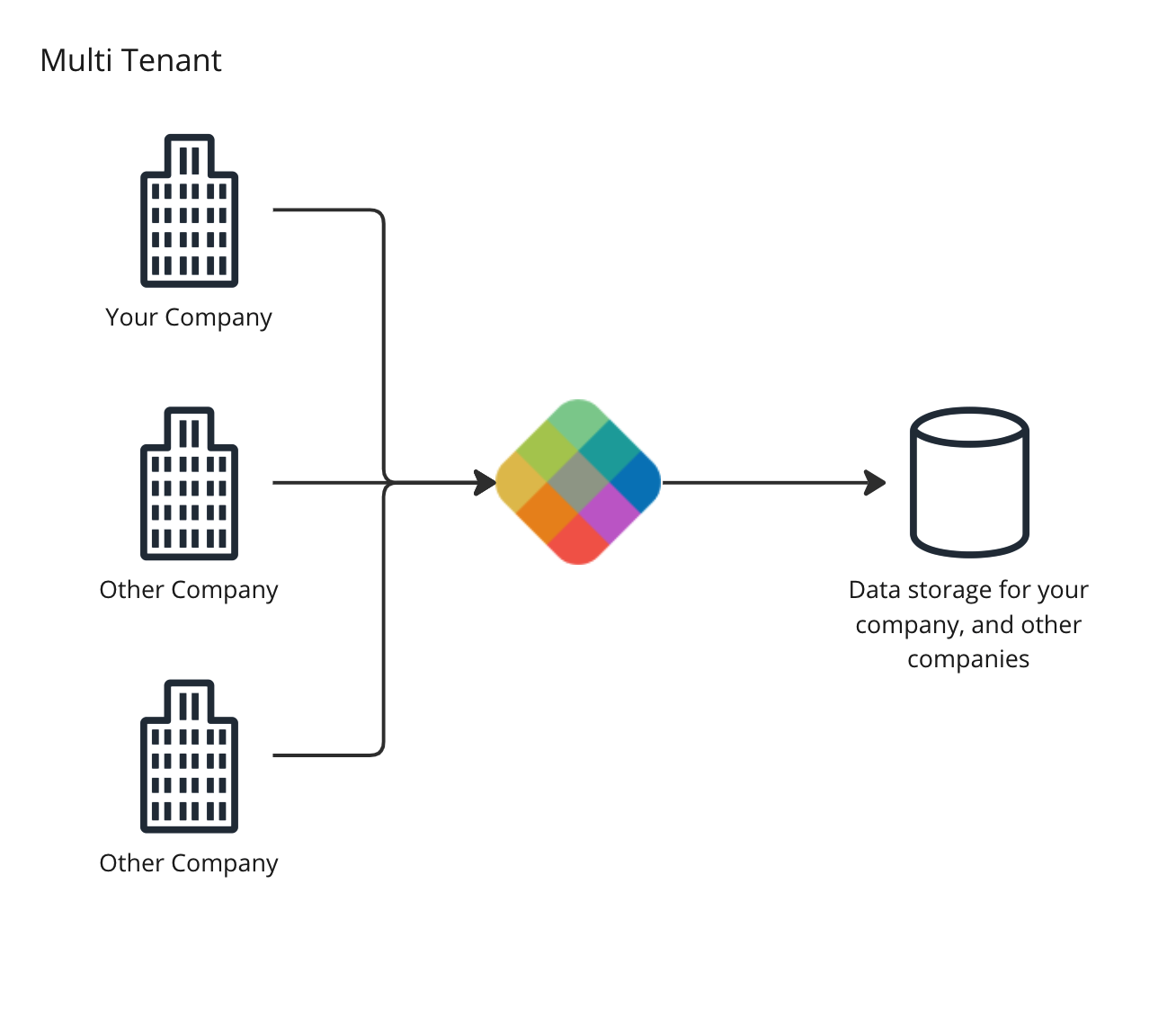Multi-Tenant
What is Multi-Tenant?
Multi-Tenant architecture is a reference to a single instance of a software application that serves multiple customers. Each customer is termed a "tenant" and they can customize some parts of the application, like the user interface, but they all share the same database, runtime, and system infrastructure.
The multi-tenant model is the most commonly chosen by businesses of all sizes. Whether you're a startup looking to keep costs down or a large enterprise, multi-tenant offerings cater to a wide range of needs.

Multi-Tenant Analogy: Apartment Building
You can think of a Multi-Tenant solution like an apartment building, it houses multiple families. The building has shared amenities like a gym, swimming pool, and laundry room. However, just like an apartment, where every family’s items are separated by the walls of their individual unit, in a Multi-Tenant system, the software infrastructure is shared, but there's code-level enforcement ensuring each tenant has its own secure space.
What are the Benefits of Choosing Multi-Tenant?
- Cost-Efficiency: Multi-tenant solutions often result in lower costs since system resources are shared among all users.
- Easier Upgrades: When the software needs an upgrade, it’s done only once, benefiting all tenants.
How do I Know if Multi-Tenant is Right for Me?
When deciding if a multi-tenant solution is right for your organization, consider the following:
- Budget: If you're looking for a more cost-effective solution in the long run, multi-tenant could be the better choice.
- Customization Needs: If your organization requires deep customization at the database level, multi-tenant might not be the best fit.
- Scalability Concerns: If you anticipate rapid growth, a multi-tenant solution would be beneficial due to its scalability.
- Maintenance and Upgrades: Centralized maintenance and upgrades ensure you always have the latest features without the usual hassles.
- Consistent User Experience: All tenants get the same, consistent experience so publicly available documentation is always relevant to you.
Updated 4 months ago
